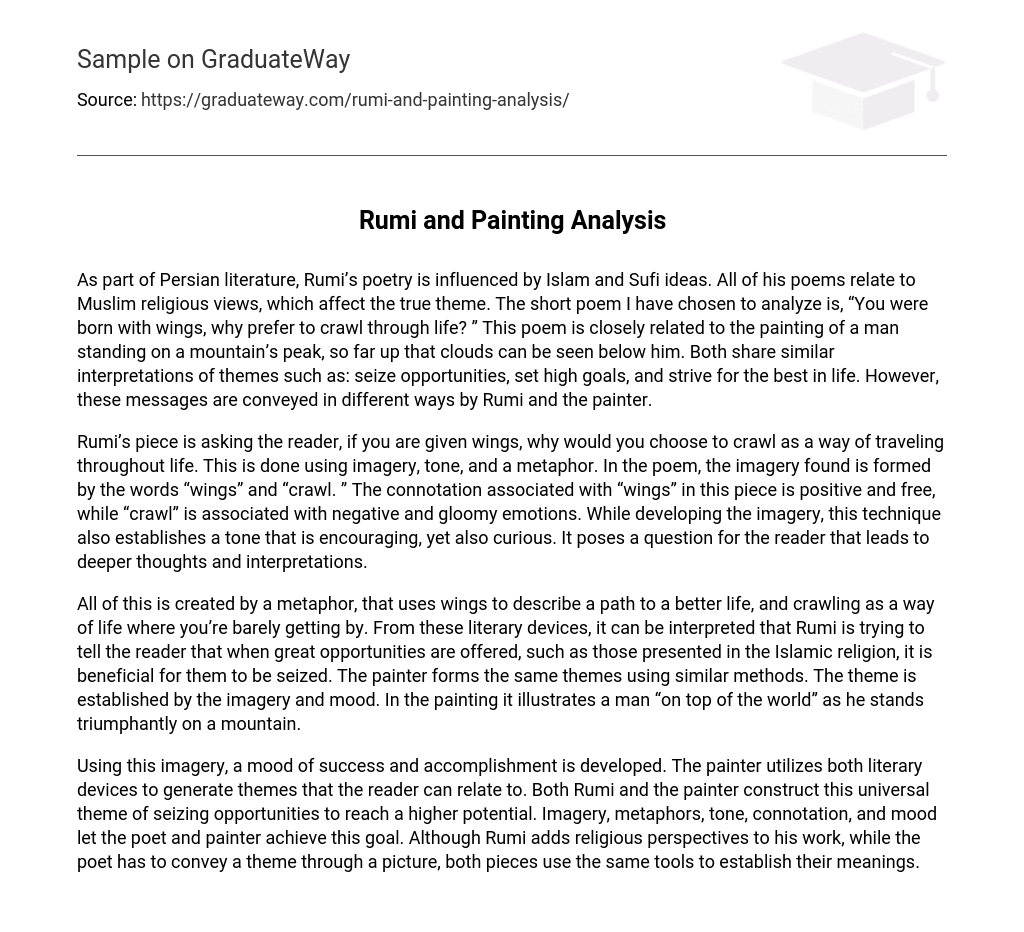Rumi’s poetry is influenced by Islam and Sufi ideas, as part of Persian literature. All of his poems relate to Muslim religious views, which impact the overall theme. The poem chosen for analysis, “You were born with wings, why prefer to crawl through life? “, closely relates to a painting depicting a man standing on a mountain peak, high enough to see clouds below. Both convey similar interpretations of themes such as embracing opportunities, setting lofty objectives, and striving for excellence. Nevertheless, Rumi and the painter communicate these messages using distinct approaches.
Rumi’s piece prompts the reader to consider why they would choose to crawl through life when given wings, utilizing imagery, tone, and a metaphor. Throughout the poem, the words “wings” and “crawl” create the imagery. The connotation of “wings” is uplifting and liberating, whereas “crawl” signifies pessimistic and somber emotions. This imagery also sets a tone that is both encouraging and inquisitive, fostering deeper contemplation and interpretation in the reader.
All of this is created by a metaphor that utilizes wings to depict a path to a more prosperous existence, and crawling as a subsistence where one barely survives. Through these literary devices, it can be inferred that Rumi is conveying to the reader the importance of seizing great opportunities, such as those presented in the Islamic faith. The painter employs comparable techniques to convey the same themes. The theme is established through imagery and mood. In the painting, it showcases a man standing triumphantly on a mountain, as if he is “on top of the world.”
The painter and Rumi both use imagery, metaphors, tone, connotation, and mood to create a theme of success and accomplishment. While Rumi incorporates religious perspectives into his work and the painter utilizes a visual medium, both artists employ these tools to convey their intended meanings.





